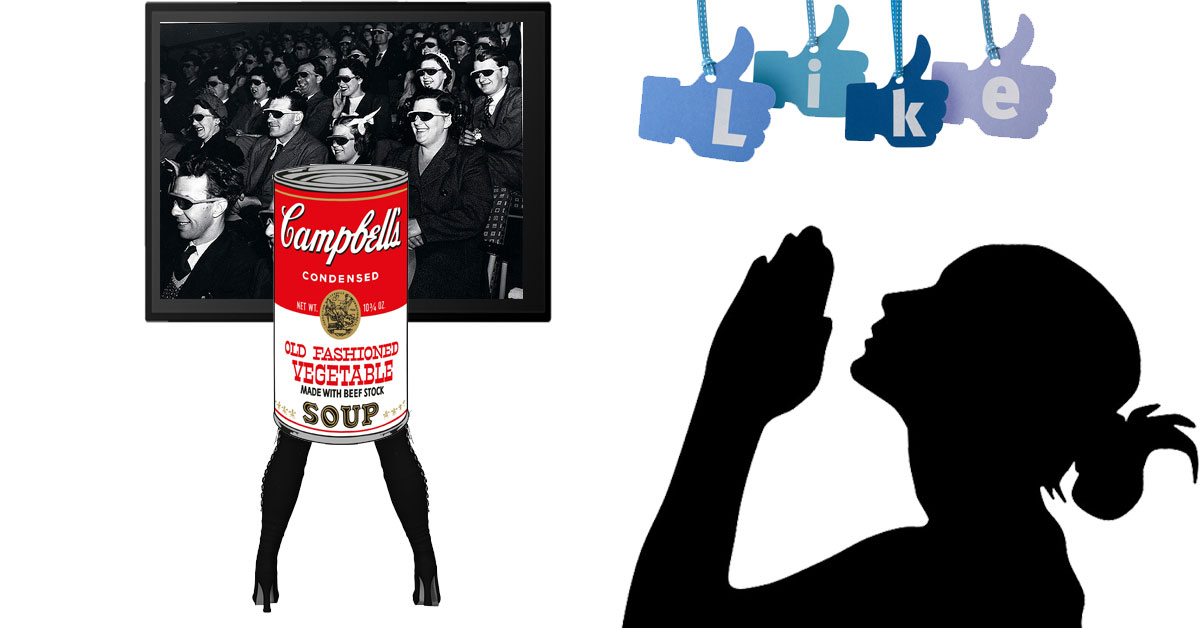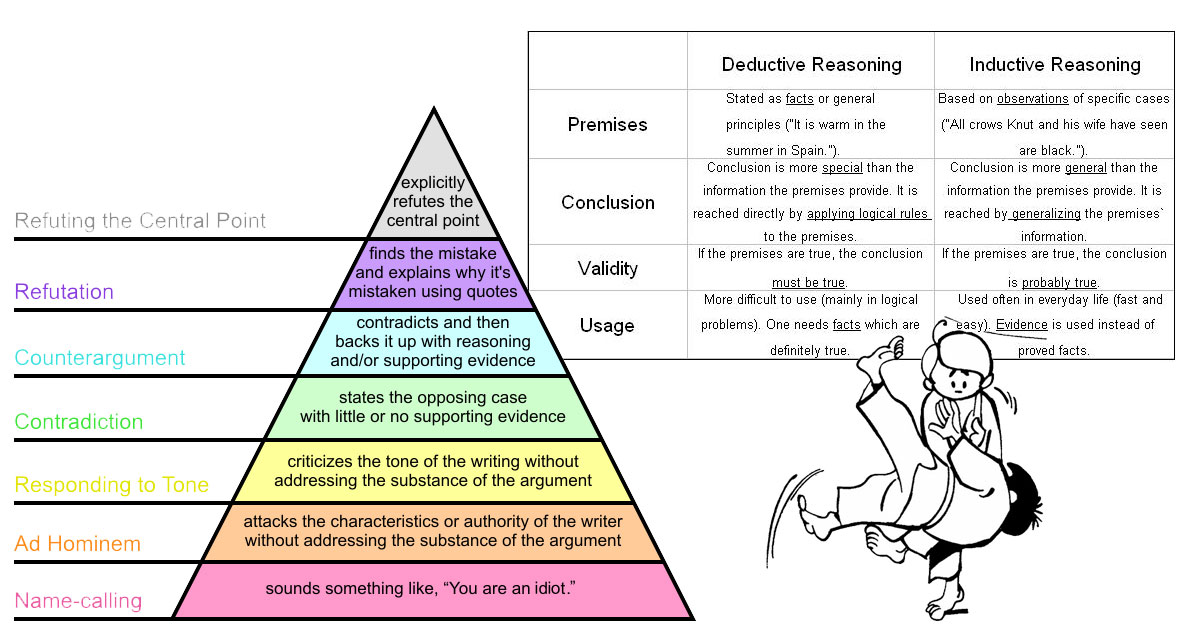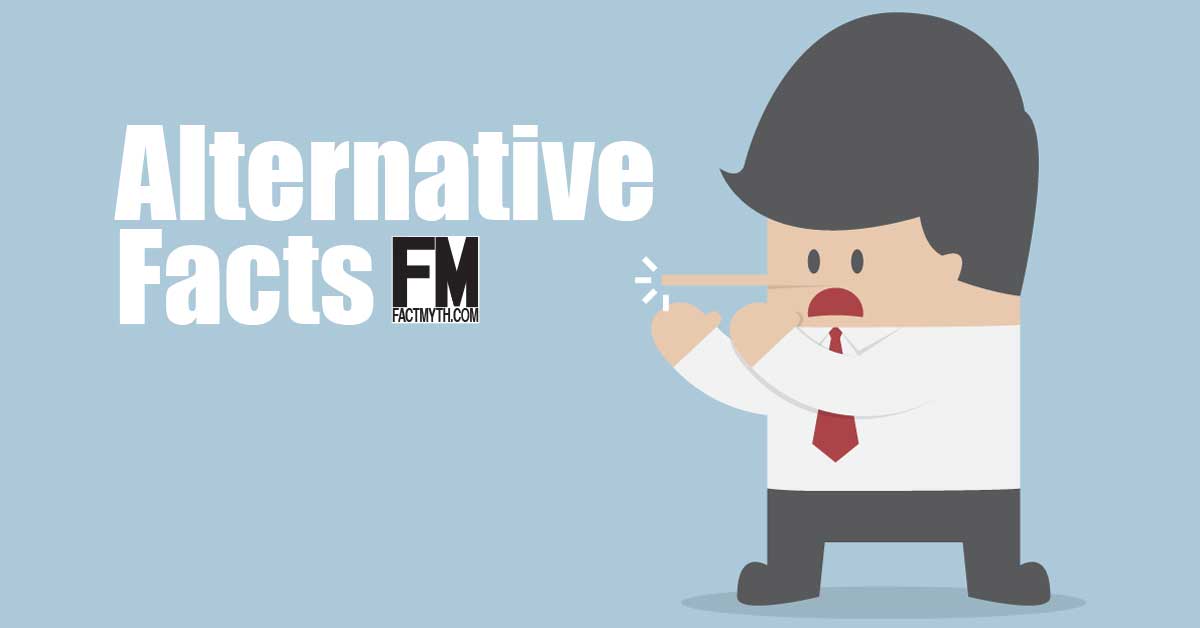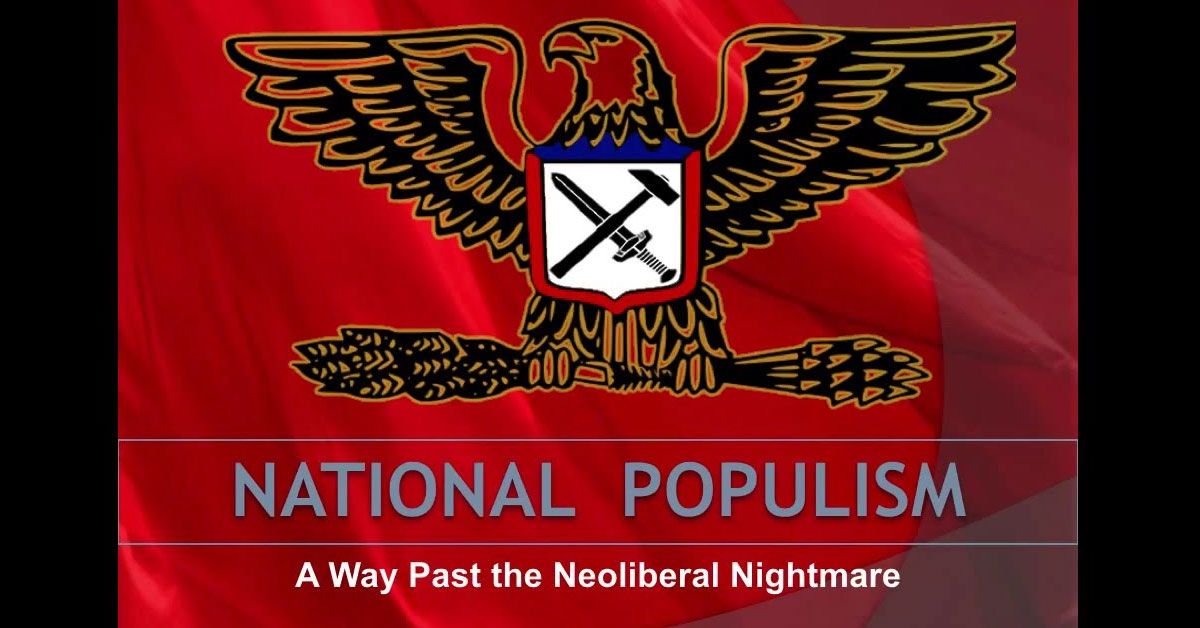Commodity Fetishism, Consumerism, the Society of the Spectacle, Alienation, and More

We define terms related to “the society of the spectacle” like commodity fetishism, consumerism, “proletarianization,” and alienation.
Propaganda is the art of public influence, the marketing of ideology, typically using indirect means. Propaganda describes the intention of the message, not the format of delivery. Any type of delivery medium humans communicate through can carry propaganda.
In most cases the goal is to sell an emotion or an idea (generally consent or dissent); the goal is generally not to provide pure information.
Semantically we can consider disinformation, misinformation, propaganda, and other tools of persuasion and influence as separate, but in a broad sense any tool used with the intention of influence is a type of propaganda.
Propaganda can be an image (like those WWII German or Russian posters), a saying, a speech, or even something less blatant. Any time one spreads ideology, through any form of communication, it is a form of propaganda.
Aristotle spoke of the oratory version of propaganda and called it rhetoric, Bernays called the many forms of rhetoric presented in any media propaganda and then PR, and sometimes today we call it advertising or “the Media”. It is the world of words and images that drives messaging in modern culture, just as it was the words and images that drove the cultures of the past.
Either way, propaganda isn’t good or bad on its own, it just is (think ad campaigns for shoes and messages of tolerance and love).
Propaganda is simply a communication tool that any human, or group of humans, can and will use to influence individuals, groups, and cultures.
Broadly speaking, one could argue that everything we do is bias and everything we do is broadly a type of propaganda. With this in mind, de-stigmatizing the word (at least in your own head) is well suggested.
Here in the age of internet and social media propaganda takes on a new meaning as we realize we ALL have power to influence culture in a positive way (via digital democracy and more).
In this way, propaganda is simply public relations on behalf on an ideology, where an ideology is simply an “idea”.
If you want to be technical, even facts can be seen a type of propaganda, as while the facts themselves are clearly stated, the choice of facts and their ordering can be a choice of ideology (something i’ve had to come to grips with as the writer of a facts site).
Since it is very difficult to remove ourselves from influencing, or being influenced, it is better then that we understand propaganda, the social psychology behind it, and how we can personally use it for the forces of good and guard ourselves against the malicious intentions of others. In ways, this subject is at the heart of the social sciences and thusly has been studied by many of the greats from Aristotle on.
TIP: If you want to present nearly-unbiased information: 1) start with a question. 2) look for honest information from .gov, .edu, and peer reviewed studies. 3) present unordered facts with only raw data and little to no descriptive words. If you want to learn more about the art of spreading positive propaganda, then the links below are a good start.

We define terms related to “the society of the spectacle” like commodity fetishism, consumerism, “proletarianization,” and alienation.

We present a list of types of propaganda, propaganda techniques, and propaganda strategies used to manipulate public opinion in the modern day.

If the fifth estate is bloggers and alt-media, then the sixth estate is the people, their comments, and social media. We discuss propaganda and “digital democracy” in the fifth and sixth estate.

Political emotion is a term that describes emotional attachments and responses to political ideas and responses to political ideas based on emotion.

I fact-check Dinesh D’Souza’s movie Hillary’s America: The Secret History of the Democratic Party.

Criminal virtue is a concept eluded to in Machiavelli’s the Prince. It describes calculated “criminal acts” that can help one get ahead in politics.

I offer opinions on how to fact-check alternative facts from the perspective of a fact-checker who fact-checks alternative facts. Fact.

Steve Bannon eluded to a “National Populist” “Deconstruction” agenda in a recent speech. We take a look at the historic meaning of those terms.

We explain the “vast-right wing conspiracy” (or right-wing strategy) that Hillary talked about in the 90s (and the left-wing equivalent).

Alternative facts describe inconsistent sets of information submitted as plausible evidence for competing sides of a case/debate/argument.